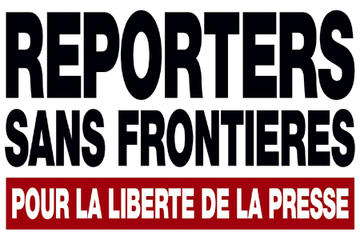
Reporters Without Borders warns that access to media and information can be dropped from United Nations development goals. Protection of the right to information is in danger of being weakened or disappearing altogether, to be replaced a vague reference to freedom of expression
Reporters Without Borders (RWB) warned in a statement on July 10th that access to media and information could be dropped from the set of new development goals to replace the eight Millennium Development Goals (MDGs) expiring at the end of 2015.
The warning came four days before the opening of the final, four-day session in New York of the Open Working Group (OWG), which was established in January 2013 with the task of drafting the post-2015 Sustainable Development Goals (SDGs).
Media and information fall within the scope of Goal 16: "Achieve peaceful and inclusive societies, access to justice for all, and effective and capable institutions", which - RWB said - was the subject of heated debate. The Paris-based watchdog also believed that certain OWG members were seeking to water down texts referring to the protection of the right to information.
"Including protection of the right to information and to free, independent and pluralist media in the development goals offers a historic opportunity to enshrine these principles as indispensible for the development of both the individual and society," the statement quoted Prisca Orsonneau, a member of the Paris bar association and coordinator of RWB's Legal Committee, as noting. "The drafters must take care to formulate Goal 16 in a precise way so as to guarantee media freedom and public access to information in a sustainable and concrete manner."
"Promote freedom of media, association and speech" was listed as a sub-goal no.17 under Goal 16 in a draft, released on June 2nd. A revised version of the draft SDGs, published on June 30th, contained a much shorter list of sub-goals and no mention of media freedom. The new sub-goal 16.7 read: "promote free and easy access to information, freedom of expression, association and peaceful assembly".
With the final session of the OWG already under way, other activists also called for the inclusion of press freedom in the final version of the SDGs, which the group is expected to submit to the UN General Assembly next month.
It is "essential" that world leaders "recognize the part played by journalism, access to information and social media in advancing development and securing good governance," Danny Glenwright, the executive director of Journalists for Human Rights, wrote in an article the Toronto-based The Globe and Mail ran on July 16th. "Journalists have long understood the role a vibrant, plural media sector has in tackling inequality, promoting diverse societies and giving a voice to women and minorities. Corrupt and weak leaders also know this, which is why so many of them resent journalists and restrict access to information."
The amended version of sub-goal 16.7 seen on the website of the UN Division for Sustainable Development on July 17th, a day before the close of the final session of the OWG, reads: "by 2025, implement effective regimes for access to information, and ensure legal frameworks guarantee freedom of media, expression, association and peaceful assembly".
A new sub-goal 16.c has been added, according to which, "universal affordable broadband access (i.e., 100% penetration)" must be achieved in every country by 2030 "as a means to promote open government".
Questa pubblicazione è stata prodotta con il contributo dell'Unione Europea. La responsabilità sui contenuti di questa pubblicazione è di Osservatorio Balcani e Caucaso e non riflette in alcun modo l'opinione dell'Unione Europea. Vai alla pagina del progetto Safety Net for European Journalists. A Transnational Support Network for Media Freedom in Italy and South-east Europe.

 Will media freedom be part of UN's future development goals?
Will media freedom be part of UN's future development goals?




 Tutti i contenuti disponibili sul sito di Osservatorio Balcani e Caucaso sono distribuiti con licenza
Tutti i contenuti disponibili sul sito di Osservatorio Balcani e Caucaso sono distribuiti con licenza 